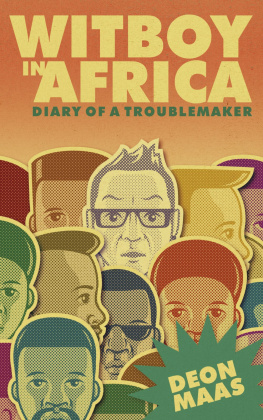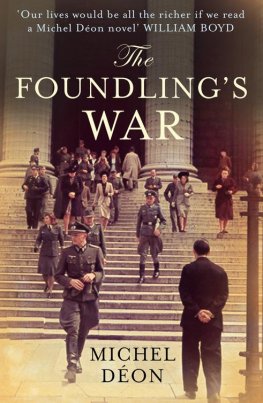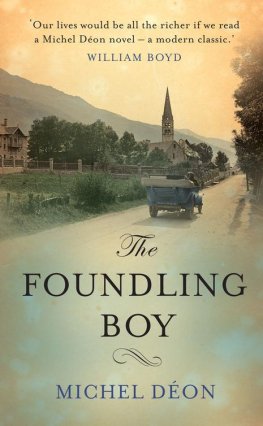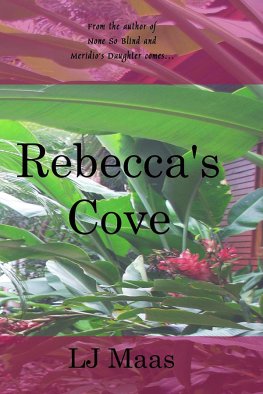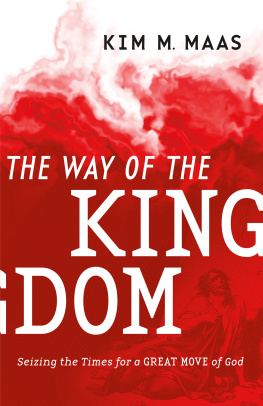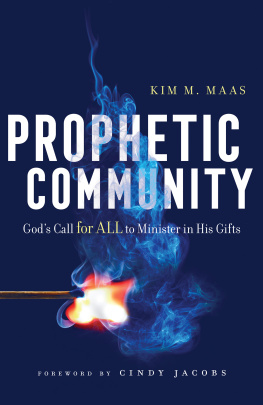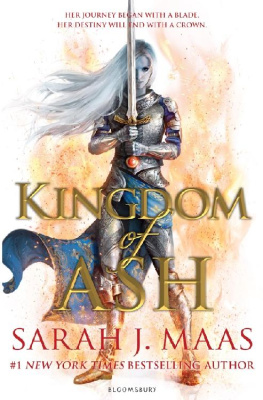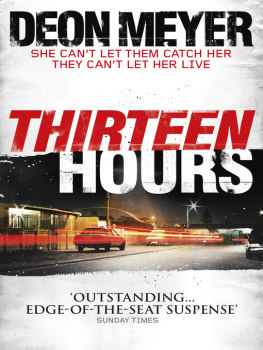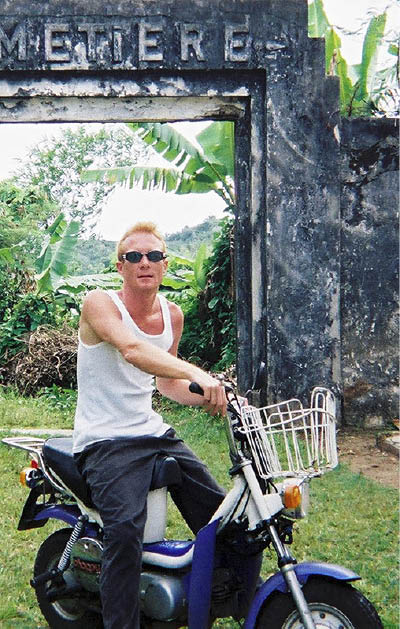Documentary filmmaker Deon Maas flees the suburbs in search of excitement. Whether its for work or pleasure, Africa is where he reckons he will find it. He ends up ducking pirates in Madagascar and narrowly escaping death at a roadblock in the Congo. His stories are spiced with fascinating characters, strange sightings and his wacky humour.
Impudent and blatantly honest, and anything but the typical tourist, Deon sets out to meet the locals and experience the underbelly of each new city he visits. His genius for getting into trouble means that even ordering a hotel breakfast can become an adventure when he is involved.
Deon Maas is an ex-journalist, ex-television talkshow host, ex-record company executive and ex-husband. As a columnist for several Afrikaans newspapers, he has become known for his outspoken and often controversial views on a range of issues. Deon is a news junkie and a voracious reader with a keen interest in African politics, travel and photography. He runs his own media consultancy called Meerkat Media that has produced several documentaries, includig My Big Fat Afrikaner Wedding, Durban Poison and the SABC series Jam Sandwich.
I HAVE ALWAYS BEEN fascinated by the exotic places where many authors write their forewords. When it was my turn, I was sitting cross-legged on the floor of the departure hall of Murtalla Mohammed Airport in Lagos. There was a restaurant on either side of me.
To my left was an expensive restaurant with French bread and perfectly prepared cappuccinos (well, perfect for Nigeria). A European soccer match filled a big screen television but thankfully the sound was off. The people in the expensive restaurant sat alone at their tables, waiting for flights to countries like France, Scotland, Lebanon, the USA
In the cheap cafeteria with the plastic chairs on my right I heard more Afrikaans than I would have in a restaurant in Joburg. The cafeteria was mostly filled with white men, probably affirmative action victims forced to sell their services in other African countries. I gathered that most of them were on their first visit to Nigeria. Strangers to each other, they exchanged stories about their experiences. Afrikaans was the unifying factor. They were a motley crew: engineers, farmers, divers on oil rigs and then there was me. I was there to make a television programme.
Everyone is always trying to help Africa, but most of the time they end up achieving the opposite. Take Madonna, for instance, who invaded Malawi like a modern day slave trader, picked out the prettiest little orphan and took him home. Or the carbon copy BBC correspondent who wrote a bestseller on how to fix up some or other African country that hed lived in for a grand total of six months.
I dont try to emulate BBC correspondents in my book and I dont have any ground-breaking insights. After travelling for more than a decade on the continent, Ive simply forgotten which of my stories Ive shared with which of my friends. So I thought it might be a good idea to put all my experiences into one book.
But as I started writing, the book took on an extra dimension that made me think about identity and race. My travels have taught me that in Africa race is regarded as extremely important, irrespective of the country youre visiting, the level of education of the people you meet or their income. Could I as a white, Afrikaans-speaking person really call myself an African? At the same time, I read esteemed author Elsa Jouberts Die Staf van Monomotapa (1964), which tells of her search for a mythical kingdom in Mozambique. The theme running through the book is her experiences as a white person in Africa. I realised that I wasnt the first person to wrestle with these questions.
There was another reason why I wrote the book. Firstly, completely out of the blue I got an offer from Kerneels Breytenbach, then head of publications at NB Publishers, to put my experiences in writing. Like most good Calvinists (in my case, lapsed Calvinist) I have a great deal of respect for older men with beards, so I had to agree. Secondly, I got a publisher by the name of Annie Olivier who understands what Im trying to say and does not try to change my language or style. In the eighties when I was still a journalist, there were many unpleasant moments between me and the elderly gentleman at Rooi Rose who had to subedit my copy. And the blockhead at Huisgenoot who got hold of my work wisely refrained from giving me his home address, foiling my plans for a late night visit.
I firmly believe that youll never understand a countrys psyche unless you know something of its history. Before I go on a trip I spend hours on the internet and in bookshops collecting information. It gives me a better idea of what to expect and it impresses the local people no end that you took some trouble to learn more about their country.
I started reading books even before I went to school and when I was fourteen my dad bought me an old second-hand typewriter from the Old Mutual. (Many rejection slips followed that gift, but lets not go into that right now.) My parents never invested in a holiday home and so we went on a new adventure every school holiday. Before we left I would read about the places we were going to visit, especially the history, and then Id force my dad to stop at every single national monument or historical site along the way.
Theres a kind of traveller who leaves at five oclock in the morning and only stops twice before he reaches his destination. The first time is to fill up and the second time is to give his noisy and troublesome kids who wont stop complaining a good hiding. I dont fall into this category, but my father definitely does. As a child I was often left by the side of the road because I was such a demanding child. Im still a rather demanding person, but now at least I have my own car and I can even smoke while Im driving. Sometimes its pretty good fun to be grown-up.
And today my father has to stop at every second farm stall, because my mother wants to buy gifts for the friends they will be staying with. My dad simply had to accept his fate even though if it was up to him he would have left at 05:00 am and only stopped twice during the trip.
Although I still read up on places before I travel, things have changed dramatically since I discovered an alternative source of knowledge about distant cities, namely its nightlife, along with beer and girls who like guys with foreign accents. Now when Im travelling to foreign cities my favourite places are bars, clubs and coffee shops. I do the necessary research, but often only use it to impress people like girls who like foreign accents. I use my local contacts as tour guides, and also get them to show me the citys underbelly. Large parts of this book were therefore written on the back of till slips in bars. If there are any factual errors I apologise in advance. Blame the liquor.
So this book is not a travel guide crammed with suggestions of which museums, old buildings or nature reserves you have to visit. They do feature, but somewhere in the background. This book doesnt even cover an eighth of all African countries, but focuses on some of the places that have made an indelible impression on me. It doesnt try to explore the entire continent like Bill Brysons books that seems like way too much work.

